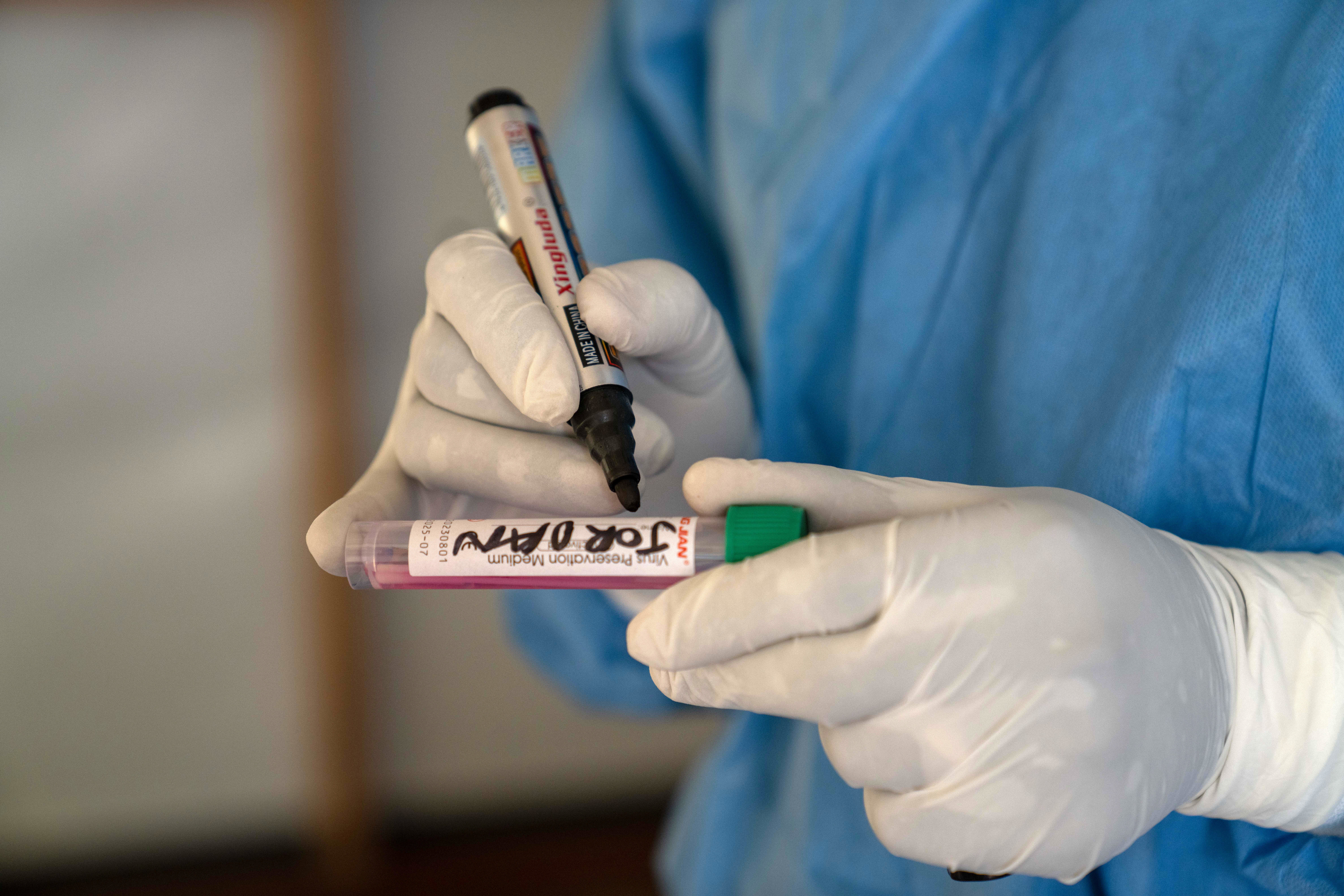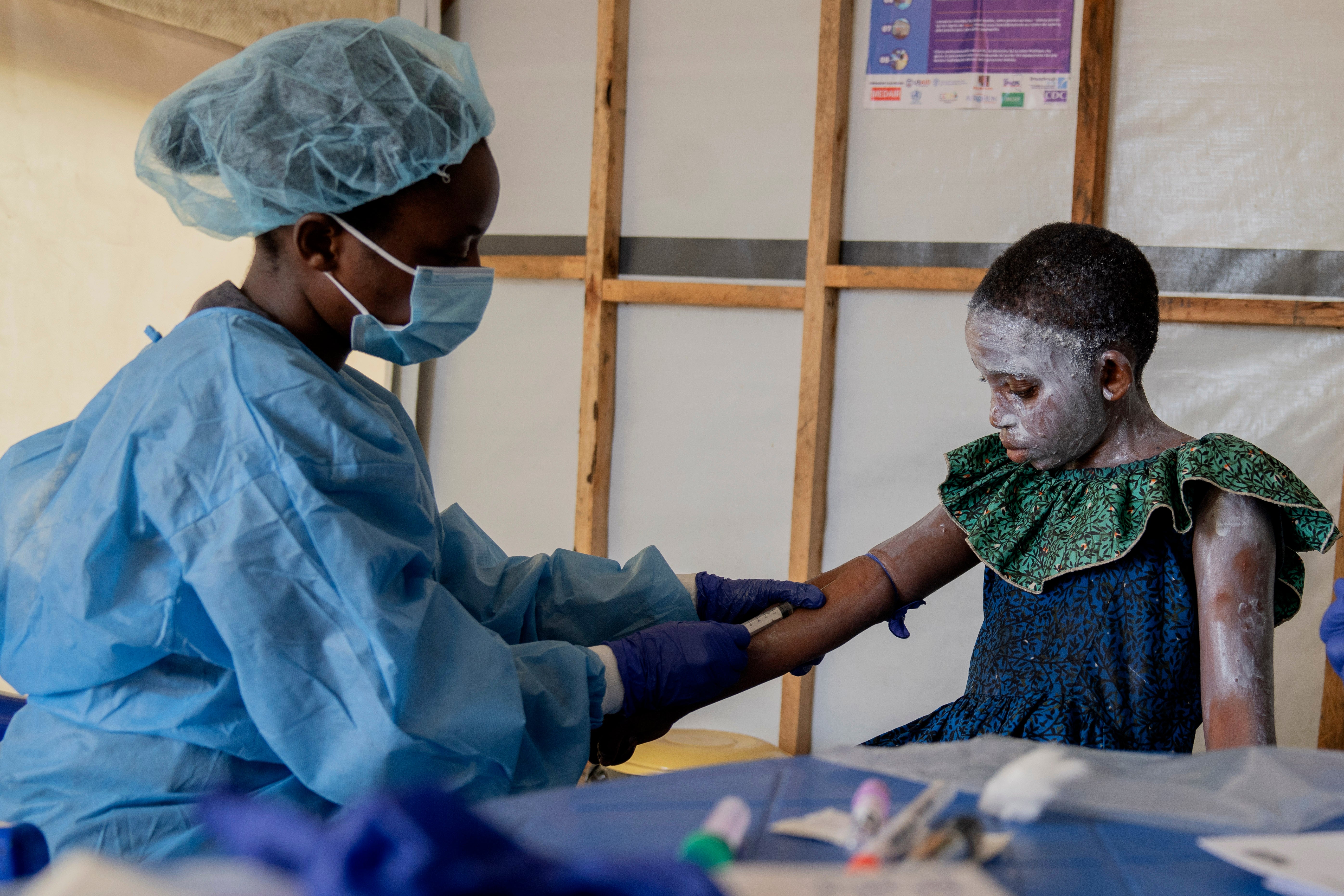World Health Organization stresses that mpox is not ‘the new Covid’
About 100 new cases of the clade 2 mpox strain are now being reported in the European region every month
Your support helps us to tell the story
From reproductive rights to climate change to Big Tech, The Independent is on the ground when the story is developing. Whether it's investigating the financials of Elon Musk's pro-Trump PAC or producing our latest documentary, 'The A Word', which shines a light on the American women fighting for reproductive rights, we know how important it is to parse out the facts from the messaging.
At such a critical moment in US history, we need reporters on the ground. Your donation allows us to keep sending journalists to speak to both sides of the story.
The Independent is trusted by Americans across the entire political spectrum. And unlike many other quality news outlets, we choose not to lock Americans out of our reporting and analysis with paywalls. We believe quality journalism should be available to everyone, paid for by those who can afford it.
Your support makes all the difference.A World Health Organization (WHO) official has stressed that mpox is not the new COVID.
The clarification comes as authorities say they know how to control its spread regardless of whether it is the new or old strain.
“We can and must tackle mpox together,” said Hans Kluge, WHO regional director for Europe, in a media briefing.
“So will we choose to put the systems in place to control and eliminate mpox globally? Or we will enter another cycle of panic and neglect? How we respond now and in the years to come will prove a critical test for Europe and the world,” he added.

Mpox, a viral infection that causes pus-filled lesions and flu-like symptoms, is usually mild but can kill.
The clade 1b variety of mpox has triggered global concern because it seems to spread more easily though routine close contact. A case of the variant was confirmed last week in Sweden and linked to a growing outbreak in Africa.
Kluge said that the focus on the new clade 1 strain gives Europe a chance to refocus on the less severe clade 2 variety, including better public health advice and surveillance.

About 100 new cases of the clade 2 mpox strain are now being reported in the European region every month, added Kluge.
Emergent BioSolutions said on Monday it would donate 50,000 doses of its smallpox vaccine to the Democratic Republic of the Congo and other impacted countries of Burundi, Kenya, Rwanda and Uganda to address the current outbreak.
Emergent’s ACAM2000 vaccine, approved for smallpox, has been used as an mpox shot but the U.S. Food and Drug Administration is yet to approve its application for use against the virus.

According to the U.S. Centers for Disease Control and Prevention, ACAM2000, a live, replicating virus vaccine, has more known side effects and risks than Danish biotech Bavarian Nordic A/S’s Jynneos vaccine, which is approved in the U.S. for both smallpox and mpox.
ACAM2000 is known to cause myocarditis/pericarditis - swelling in or around the heart muscle - in 1 in 175 new ACAM2000 vaccine recipients, according to the FDA.
Instead of an injection, the shot is given via a series of small pokes on the skin using a two-pronged needle. The injection site forms a scab, which takes 2-4 weeks to heal. Until the scab falls off, it could spread live virus to other parts of the body or people.
ACAM2000 is not recommended for people with compromised immune systems, such as HIV.

Join our commenting forum
Join thought-provoking conversations, follow other Independent readers and see their replies
Comments